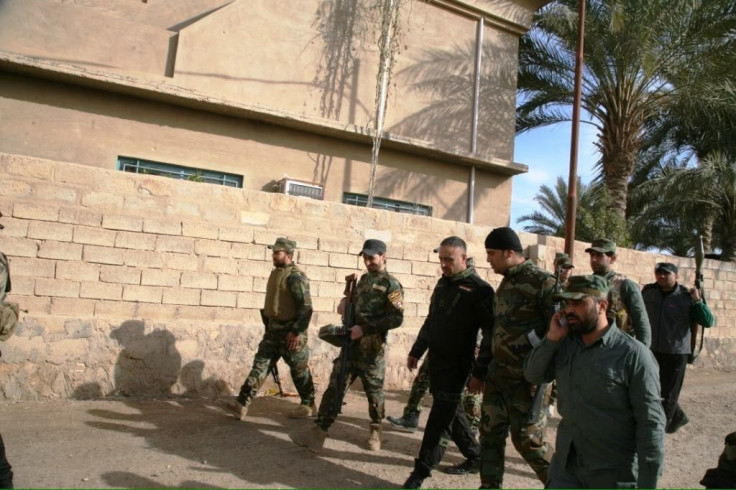US Airstrikes In Anbar Hit ISIS Weapons Stores, But Spare Enemy Fighters

ISTANBUL -- Islamic State group militants in Iraq's Anbar province have escaped an onslaught of U.S. air bombardments, Sunni tribal leaders fighting the terrorist group in Ramadi said. The militants, who quickly gained ground in Anbar and are now close to a base where hundreds of U.S. personnel are training Iraqis, are rampaging in the province, occupying villages and slaughtering scores of people.
The Sunni tribes in the area, as well as the Iraqi military, are trying to repel the group from the province, which leads directly to Baghdad, but their efforts so far have been in vain. The group also known as ISIS or ISIL still holds the majority of the cities of Ramadi and Fallujah, is within shooting distance of the Al Asad air base with its American military advisers, and Iraqi media reported that dozens of bodies were found in the town of Al Baghdadi, charred from being burned by ISIS.
"We need U.S. boots on the ground," Sunni tribal leader Muhand Murshad Drueesh Alwany said in an interview from Ramadi. Without direct U.S. help or airstrikes killing ISIS fighters, the Anbari tribal militias have no chance, he said. The Iraqi army and the Sunni tribesmen lack the experience and training, and corruption within the army makes it ineffective at fighting ISIS, he said. "We would need to reform the entire military," he said.
Azhar Shalalee, a political activist based in Anbar, said the U.S. airstrikes are targeting ISIS weapon storage centers located in garages and construction factories, which suggests the Americans have good intelligence on the ground. But the airstrikes have not killed any militants, he said.
The militant group is not losing ground in Anbar. Its fighting units are still intact, its leaders unharmed. Abdulla Al-Janabi, one of the most prominent ISIS leaders in Anbar, is still leading his troops, some of whom are defectors from Anbar's Sunni tribes.
There are currently between 5,000 and 7,000 ISIS fighters from Anbar tribes moving into the city of Fallujah, according to Majid Hussein, a political analyst based in Erbil in Iraqi Kurdistan, and are beginning to focus their efforts on gaining ground there. And then, according to Hussein, they will mount another push for Baghdad.
Some 1,400 U.S. troops arrived in Anbar in November, sent to help the Iraqi military plan the fight against the extremist group, which at that point already had taken over more than 80 percent of the province. Hundreds are now stationed at the Al Asad airbase training Iraqi soldiers. But they also are supposed to be building up a Sunni-dominated national guard made of tribesmen, which Sunni tribal fighters say is not actually happening yet.
© Copyright IBTimes 2024. All rights reserved.











